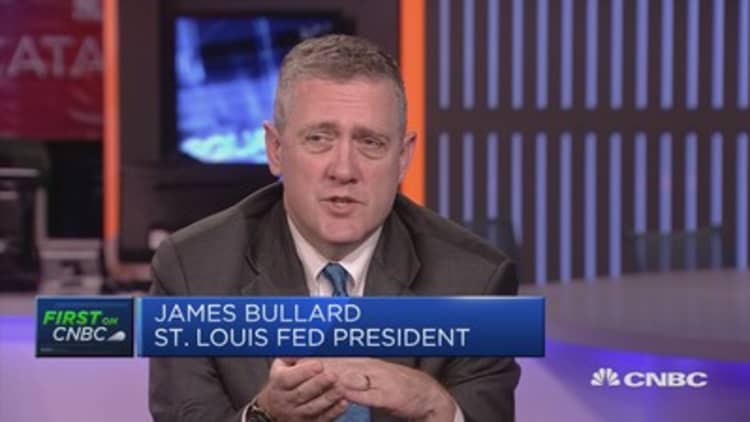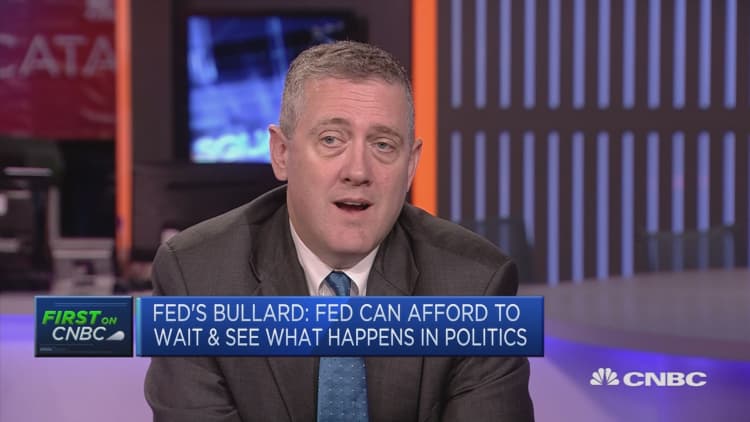
The U.S. Federal Reserve should defer on its rate hike agenda until concrete reforms emerge from Washington, according to one of its key policy makers.
James Bullard, president of the St. Louis Federal Reserve, told CNBC Friday that weak data has undermined the Fed's hawkish stance and the central bank should take a more reactionary approach if and when it sees solid signs of growth.
"The Fed can afford to wait and see what comes out of the political process," said Bullard, who admitted he has retreated from his formerly more hawkish stance.
"Some of (President Donald Trump's) policies can provide growth but they've got to get them through congress," he explained.
Disappointing data
The Fed announced its most recent interest rate hike of 0.25 percent in June. However, it simultaneously admitted that it expects U.S. inflation to fall well short of its 2 percent target this year.
"The committee has been too hawkish for the data during the last 90 days or so," said Bullard.

"The data has not been that great considering that we got going on this three hike process in December, March and June. You'd like to make a move like that on the back of pretty strong data for the U.S. economy but the consumption number was not that great.
No longer a voting member of the Federal Reserve, Bullard's comments stand at odds with other policy makers – and indeed many investors - who largely expect one more interest rate this year followed by a further three in 2018.
"The Fed does not have to be pre-emptively raising rates ahead of reforms," said Bullard, who instead recommended the possibility of next raising rates after the New Year.


